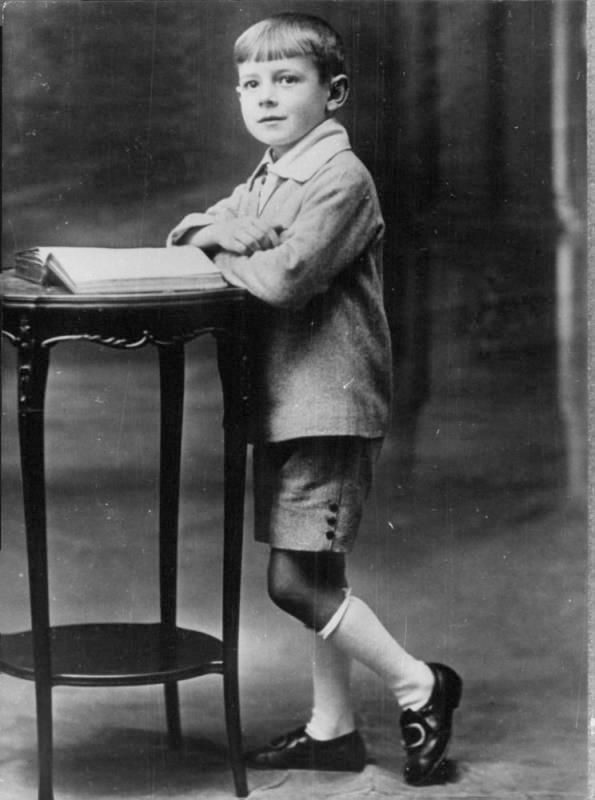
Jean Lecanuet (France, 1920 – 93)

Figure 1.--This is a photograph of Jean Lecanuet as a child. He looks to be about 8 years old and is wearing a short pants suit. Notice the leg buttons on the shorts--a fashion artifact from the knee pants that were commonly worn before World War I. He is pictured with a book and was an excellent student. This was, however, probably not how he dressed for school. Smocks were very common schoolwear in France at the time. The portrait is not dated, but was probably taken about 1928.
|
|
Jean Adrien François Lecanuet was a French centrist politician of some note during the 1970s. He was born to a modest middle-class family and primarily interested in literature as a student. Here we see Jean dressedvup fir a portrait (about 1928). He was a brilliant scholar, earning his diploma at the age of only 22 years, becoming the youngest agrégé (full professor) in France. This occured juat as France had fallen to NAZI German during World War II. He was not in the Army as he was a university student. He joined the Resistance, a very dangerous undertaking. He was picked up by the Gestapo (August 1944), but managed to escape just as the Allies liberated France guaranteeing his survival. Rather than pursuing an academic career in literature after the War, Lecanuet turned to politics. Under the Fourth Republic, he held ministerial posts numerous times (11 appointments in 10 years) and was a member of the Christian-Democratic Popular Republican Movement (MRP). The many ministerial posts in short succession show just how chaotic French politics were at the time. He ran for president and was supported by Paul Reynaud. He advocated what he called modernity and European integration presenting himself as a third way between Gaullism the Socialist/Communist Left. His 'modern-style' was new in France and journalists began calling him the 'the French Kennedy'. He forecd DeGualle into a run-off election against François Mitterrand. He founded the Reforming Movement with Jean-Jacques Servan-Schreiber (1972). French politics and throughout much of Europe, however, varies from the United States in that there was no strong popular support for capitlism. Nothing like the Tea Party that emerged in the United States. Thus candidates like Lecanuet were essentially advocating socialism ligh. Thus France today is stuck with uncompetitive industry and a welfare system that the country has to go further into debt each year to afford, a debt that continues to grow every year. You do not see any political protest about that. You do see protests about any cuts in the social welfare system.
HBC

Navigate the Boys' Historical Clothing Web Site:
[Return to the Main biography G-L page]
[Return to the Cold War France page]
[Introduction]
[Activities]
[Biographies]
[Chronology]
[Clothing styles]
[Countries]
[Bibliographies]
[Contributions]
[FAQs]
[Glossary]
[Images]
[Links]
[Registration]
[Tools]
[Boys' Clothing Home]
Created: 2:18 PM 10/14/2018
Last updated: 2:18 PM 10/14/2018



